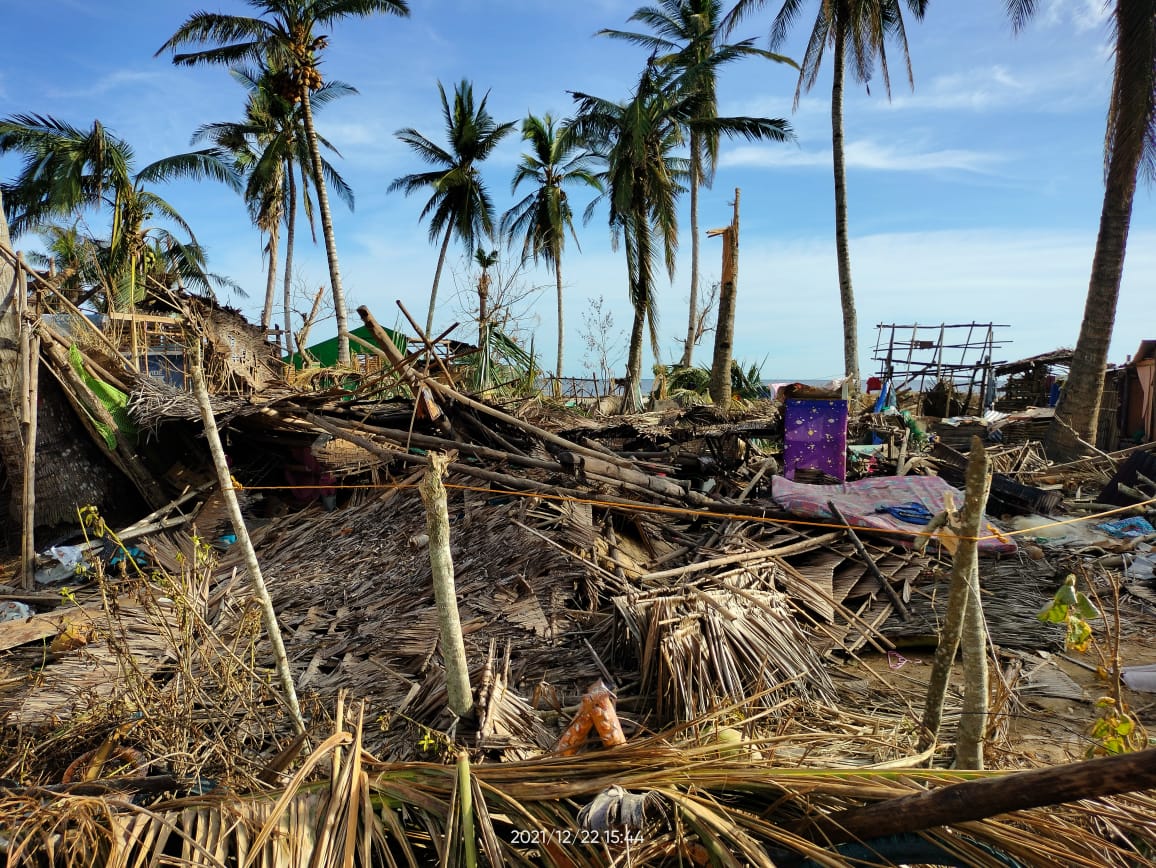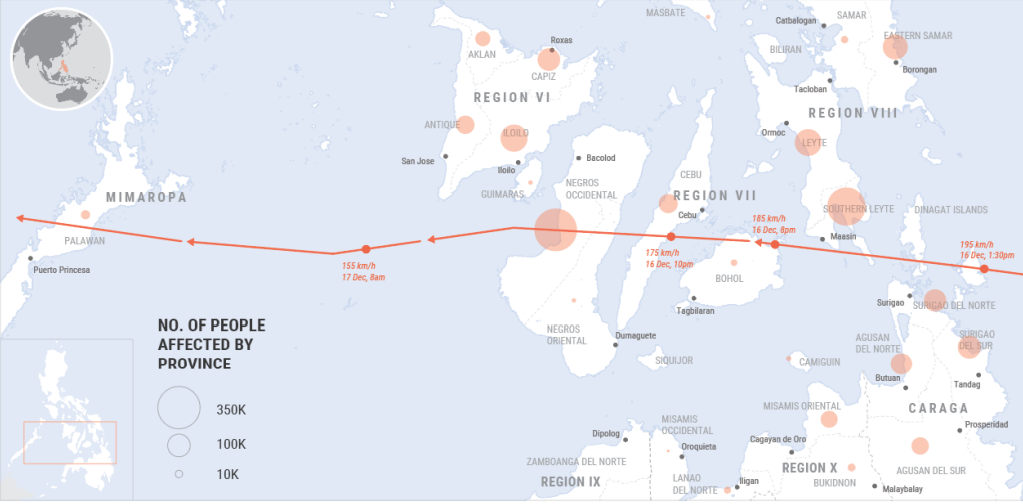The damage caused by Super Typhoon Rai (locally known as Odette) in the Philippines is enormous. Shortly before Christmas, the storm passed over several islands within two days and left a trail of devastation in its wake. For four days as a result, those affected were cut off from all contact with the outside world. After an initial assessment of the situation on the ground, it is clear that the need for aid is enormous. Local contacts speak of effects comparable to those after Super Typhoon Haiyan in 2013. According to UN-OCHA, more than 1.8 million people have been affected by the disaster. More than 600,000 people have been displaced and more than 50,000 homes destroyed. Approximately 400 people lost their lives.
Through the local partner organization "A Single Drop for Safe Water", arche noVa has supported the authorities on the typhoon-affected island of Palawan in a first step to get an overview of the damages and has already started first emergency relief and reconstruction measures. Priorities for those affected at the moment are the provision of food, drinking water, shelter, fuel, hygiene kits and medical care. Many people are still without electricity, water supplies have collapsed and the livelihoods of some farmers or fishing communities have been completely destroyed. Covid-19 also further exacerbates the situation.
Thanks to an institutional framework agreement, arche noVa can now provide help to people in need particularly quickly. For the readiness of emergency structures and a possible response, arche noVa supports "A Single Drop for Safe Water" since March 2020 with an annual contribution of 10.000 Euro. The structures thus created now enable the affected people to get help quickly.
Two drinking water treatment plants from the arche noVa stock, so-called sky hydrants, have already been brought from the capital Manila to Palawan in order to improve the drinking water supply there. Furthermore, arche noVa has released another 10.000 Euro for further emergency aid activities. With this money, water tanks for the drinking water supply can be provided and the existing WASH infrastructure can be repaired. Priority is given to the rehabilitation of spring catchments, pumps, filtration systems and water pipes. Thanks to these measures, the people affected will also receive a sustainable supply of drinking and process water - and thus the basis for a return to a new normality.














